Stacey Mac Donald
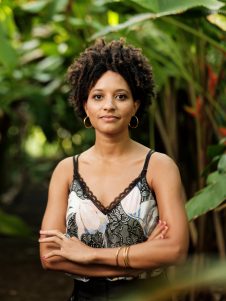
Stacey Mac Donald is an environmental psychologist and, after her studies at Leiden University at KITLV, carried out PhD research in the research project ‘Confronting Caribbean Challenges’. She defended her thesis in 2022, for which she conducted research into the societal challenges of nature and nature conservation in the Caribbean Netherlands. Mac Donald has her own consultancy for Nature-Based Solutions. She currently works for the World Wildlife Fund for Nature – The Netherlands (WWF-NL), based on Bonaire as an advisor for the WWF-NL Caribbean program.
“Life in “Paradise”: A Social Psychological and Anthropological Study of Nature Conservation in the Caribbean Netherlands”
In her keynote address, Dr. Stacey Mac Donald will examine the efforts and motives of conservation actors on Bonaire, Saba, and Sint Eustatius, and situates these actors within the larger context of the Caribbean Netherlands. By combining insights and approaches from environmental psychology, anthropology, and Caribbean studies, she investigates how and why residents of the Caribbean Netherlands engage in conservation actions. Situated in social history, cultural and environmental anthropology, public administration, and environmental science, this research aims to create a broader, less compartmentalized, picture and also addresses societal concerns. In addition to her research findings, currently day examples illustrating these concerns and perspectives will be shared based on experiences and observations in the field and acquired through her current work as program advisor for WWF-NL based in the Dutch Caribbean.
Life in “Paradise”: A social psychological and anthropological study of nature conservation in the Caribbean Netherlands
https://scholarlypublications.universiteitleiden.nl/access/item%3A3304072/view
Stacey Mac Donald
macdonald@macandfield.com
Francio Guadeloupe
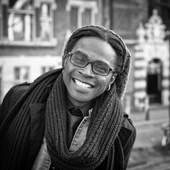
Dr. Francio Guadeloupe is senior researcher at the Royal Netherlands Institute for Southeast Asian and Caribbean studies and Associate Professor in Social and Cultural Anthropology at the University of Amsterdam. He is author of Chanting Down the New Jerusalem: Calypso, Christianity, and Capitalism in the Caribbean (University of California Press, 2009) and Black Man in the Netherlands: an Afro-Antillean Anthropology (University Press of Mississippi, 2022).
Charissa Granger
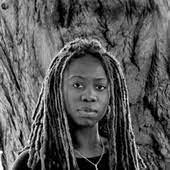
Dr. Charissa Granger is musicologist and lecturer in cultural studies at The University of the West Indies, St. Augustine whose research focuses on Afro-Caribbean and diasporic music-making and performance as decolonising practices. Charissa was the Marie Skłodowska-Curie LEaDing Fellowship at Erasmus University Rotterdam and is a postdoctoral researcher in the NWO-funded Island(er)s at the Helm research project.
“Human-ing Out Loud: Ontologies of Disorder in a Musically Exemplified Trans-Caribbean-Thought“
Jouvay, the midnight jamboree heralding the start of carnival on West Indian islands transposed to the Neerlandophone world, presents an ongoing conversation about how to human in singular-multiple ways which are sensitive to relations between so-called species, spirits, saints, mythical characters, and devils. Another ecosystem, boundless and disenchanted by difference, is imagined and temporarily created in daaance (Stines). With three aaa’s, daaance rather than dance encompasses movement, singing, drumming, reverence, language, food, sacrifice, ritual, politics, politricks, and passion. This other ecosystem, perpetually negating systematicity, is a space and a short-offered time where inter- and intra-subjective play, sounding out, and daaance allow for different futures to be imagined and new forms of human-ing that embraces relations with non-human animals and life and death to be practiced. It is a refusal of exclusion and a move towards making inequity inexact.
In introducing our version of the Trans-Caribbean-Thought, which is a sister-brother-queer cousin of decoloniality, critical race studies, postcoloniality, Marxism, and Feminism an extra option is offered for keepers of nonconformity to remain transmitters of one-pluriversal Love.
Vishal Prasad
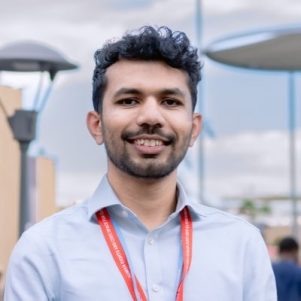
Vishal Prasad is the Campaign Director of the Pacific Islands Students Fighting Climate Change (PISFCC), a campaigner for the World’s Youth for Climate Justice (WYCJ), and a University of the South Pacific graduate.
Pacific Islands Students Fighting Climate Change is a youth-led organisation whose members are students from the Pacific Island countries, with chapters in the Solomon Islands, Fiji, Vanuatu, and Tonga.
“Journey to the International Court of Justice: Taking Climate Change to the World’s Highest Court”
The Pacific led campaign to seek an International Court of Justice Advisory Opinion has seen great support at the international level. It began by a group of students, the Pacific Islands Students Fighting Climate Change, and has culminated in the adoption of a UNGA resolution requesting the ICJ to provide an advisory opinion. This talk will discuss the origins of the campaign by focussing on the specific elements of the campaign that remain at the heart of the youth and civil society movement – human rights and intergenerational equity, and how this campaign can help catalyse greater climate action and ambition. It will also speak about how the advisory opinion campaign is important in shaping the development of international law to be capable in more holistically respond to the challenges brought about by both the climate, and the ensuing, human rights crisis.
Please welcome our two representatives from the Fundacion Parke Nacional Aruba!
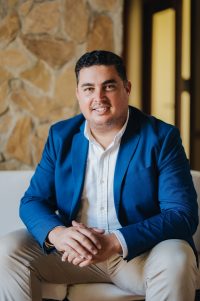
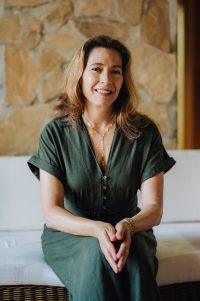
Tyson O. Lopez
Chief Executive Officer at Fundacion Parke Nacional Aruba
Natasha J. Silva
Chief Conservation Officer at Fundacion Parke Nacional Aruba
“Conserving Paradise“
Islands contribute to “only 6.7% of land surface area” of our world, but “they harbor ~20% of the Earth’s biodiversity, but unfortunately also ~50% of the threatened species and 75% of the known extinctions since the European expansion around the globe”(Fernández-Palacios et al. 2021). Aruba is not an exception to this rule. The economy of the host country for this conference is driven by tourism, and as the economy continues to grow so will the threats to Aruba’s unique nature. Balancing the unique ecosystems and biodiversity of this island state with the pressures of economic and demographic development is a complex and challenging task.
Fundacion Parke Nacional Aruba (FPNA) is an independent conservation authority that manages more than 24 percent of the terrestrial surface of Aruba and 0.2 percent of the territorial waters. In this keynote Tyson and Natasha will highlight the unique characteristics of Aruba’s ecosystems and biodiversity, focusing on how FPNA is strategically responding to the changing socio-economic development of this island to safeguard nature and the islandness that our tourism economy depends on.

